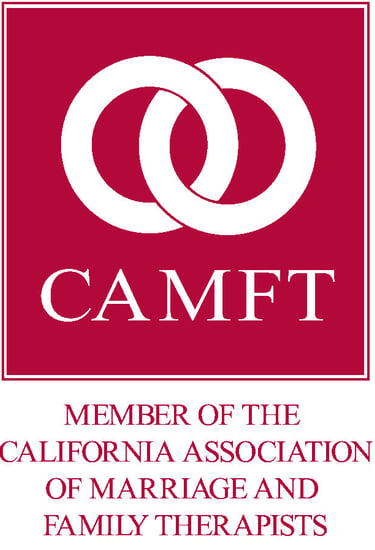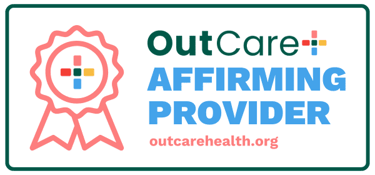This article is part of the Men’s Therapy series on masculinity and mental health.
Fathers, Absence, & the Masculine Role Models We Never Had
Many men carry silent wounds from absent or emotionally distant fathers. This post explores healing through therapy and reclaiming masculine mentorship.


The Father-Shaped Hole
For many men, the story of masculinity begins with someone who wasn’t there. Maybe your father left early. Maybe he stayed but never really saw you. Maybe he taught strength but not softness, discipline but not warmth. Sometimes the hurt comes not only from absence but from how a father shows up—what he offers to some children and withholds from others. You don’t have to hate your father to carry a wound from this key relationship.
Sometimes the damage is subtle: a father who was physically present but emotionally unreachable. A man who provided but never protected your inner world. A parent who didn’t know how to ask, “How are you really doing?”—and wouldn’t have known what to do with the answer.
This absence becomes internalized. Boys learn not to need. Not to cry. Not to reach out. They grow into men who don’t expect to be understood—and feel ashamed for wanting connection.
This sense of being unseen leaves many men with a kind of emotional amnesia: they forget how to feel, how to ask for help, and eventually, how to connect.
Masculinity Without Mentorship
Without positive male role models, many men unconsciously adopt one of two paths:
Becoming stoic and hyper-independent
Seeking approval through performance, perfectionism, or people-pleasing
This can leave a core wound of: If I show my true self, I won’t be accepted.
And when those early needs for protection, validation, and guidance aren’t met, men may stop asking altogether. They may pursue success, relationships, or even spiritual growth—while carrying a quiet belief that something inside them is unlovable or broken. This sense of internal conflict is explored further in why masculinity always feels under attack.
They’re often the ones others rely on. The ones who say “I’ve got it handled.” And yet deep down, something aches.
According to Kimmel (2006), American masculinity has long relied on distancing from vulnerability. The father-son dynamic, passed down through generations, becomes a mirror of this avoidance—one that subtly teaches boys that connection is not a masculine trait.
The Emotional Cost of Absence
The father wound isn’t just a feeling. It shapes how we show up in every part of life:
Struggling to trust other men
Feeling pressure to prove yourself constantly
Avoiding vulnerability in relationships
Confusing control with safety
Feeling ashamed for having needs at all
This absence becomes internalized. Boys learn not to need. Not to cry. Not to reach out. They grow into men who don’t expect to be understood—and feel ashamed for wanting connection.
The absence isn’t only about whether a father was physically there. Sometimes it’s about how he showed up—teaching strength to his son, tenderness to his daughter. For trans men, being placed on the “daughter” side of that divide can mean never receiving the reflection that matched who they really were.
These patterns often live in the body—in the nervous system. The result is a kind of emotional armor: protective, yes. But also isolating. Many of these behaviors stem from emotional needs men are taught to ignore.
Men may experience this wound as quiet resentment, a drive to be "better" than their father, or an aching grief that doesn’t always have a clear source. It might show up in overworking, shutting down during conflict, or feeling empty even in moments that are supposed to be joyful.
Therapy often uncovers how early experiences with fathers (or lack thereof) shaped expectations around love, success, and identity. Levant & Richmond (2007) note that when boys are taught to adhere to rigid masculine norms, they internalize emotional restriction as a core part of their identity, making repair all the more complex.
The Legacy We Carry—And Can Transform
A father's emotional distance doesn’t just disappear with time. It often echoes through decades—shaping careers, relationships, and a man's sense of worth. Yet, awareness offers an opportunity to break the cycle.
In recent years, research has shown that men are increasingly aware of what’s missing. A 2021 survey from the American Enterprise Institute found that fewer than half of American men report being satisfied with their friendships, and many feel emotionally isolated. Meanwhile, the Equimundo report (2023) revealed that 2 out of 3 young men (ages 18–23) say “no one really knows me.”
This is not just a personal issue. It’s cultural. Generational. Systemic. But the healing, while deeply personal, creates ripples.
What We Didn’t Receive Can Still Be Grown
Therapy doesn’t pretend to replace a father. But it can offer a space to reparent yourself—to slowly develop the parts of you that didn’t get to grow.
In our work together, we can:
Name the emotional impact of your early relationships
Practice new ways of relating—without shame
Explore grief, anger, and tenderness safely
Connect to forms of masculinity that feel true to you—not inherited scripts
Cultivate internal sources of support that were never modeled
Untangle the effects of being misgendered or socialized in ways that never fit—while strengthening a masculinity that feels authentic to you.
Therapy can also help you stop the cycle. If you are (or plan to be) a father yourself, healing this wound gives you more freedom to show up differently—for your children, your partner, and most importantly, yourself.
You don’t have to carry this alone. And you don’t have to heal it alone, either. If you're looking for dedicated therapy for men in San Francisco, or in anywhere in CA, this page outlines my approach to working with men around identity, relationships, and emotional healing.
Sources Referenced
Kimmel, M. (2006). Manhood in America: A Cultural History.
Levant, R. F., & Richmond, K. (2007). A Review of Research on Masculinity Ideologies Using the Male Role Norms Inventory. The Journal of Men’s Studies.
AEI/Center on American Life (2021). Survey on male friendship and loneliness.
Equimundo (2023). The State of American Men.





